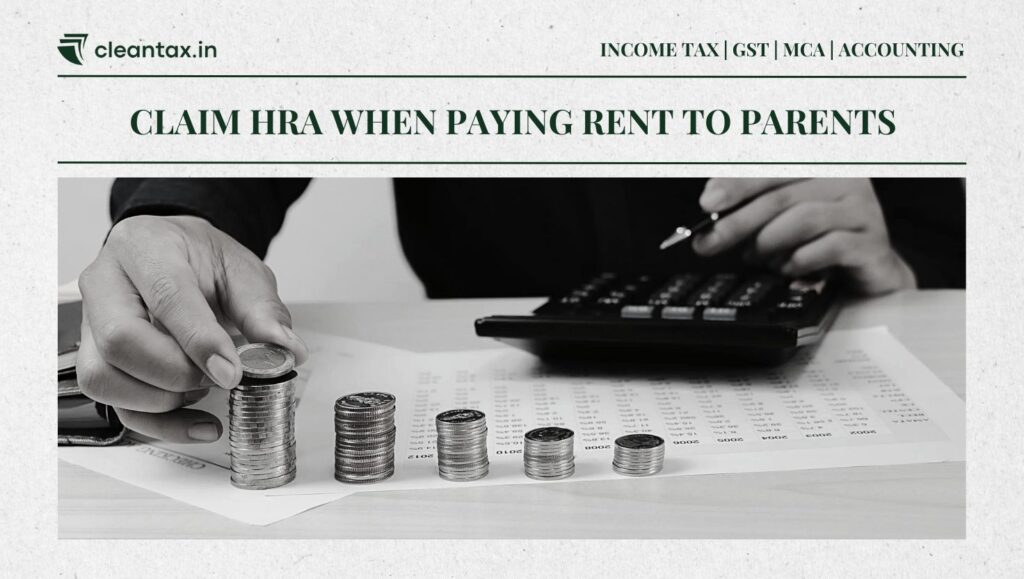Imagine saving thousands of rupees on your taxes every year, simply by paying rent to your parents. It might sound too good to be true, but it’s not! If you’re a salaried individual living with your parents in India, you can Claim HRA and reduce your taxable income. However, this isn’t just about living with them—you need to follow specific rules, maintain proper documentation, and ensure the arrangement is genuine. In this detailed guide, we’ll walk you through everything you need to know about how to claim HRA when living with parents, step-by-step, so you can maximize your tax savings legally and confidently.
This blog post will cover what HRA is, how you can claim HRA it while living with your parents, the legal requirements, tax implications, common mistakes to avoid, practical examples, and answers to frequently asked questions—all in simple, easy-to-understand language. By the end, you’ll have a clear roadmap to save on taxes without any hassle. Let’s dive in!
What is House Rent Allowance (HRA)?
House Rent Allowance (HRA) is a part of your salary that your employer provides to help you cover the cost of renting a home. It’s especially useful in cities where rent can take a big chunk out of your income. But HRA isn’t just a perk—it comes with tax benefits under Section 10(13A) of the Income Tax Act, 1961.
Here’s the deal: a portion of your HRA can be exempt from tax, meaning it won’t be added to your taxable income. This reduces the amount of tax you pay each year. However, to claim this exemption, you must actually pay rent for the place you live in. If you own your home or don’t pay rent to parents, the entire HRA becomes taxable.
How is HRA Exemption Calculated?
Your basic salary here includes dearness allowance (DA) if it’s part of your salary structure, since DA is a cost‐of‐living component and counts towards “basic” for HRA purposes. Let’s unpack each of the three limbs of the HRA exemption calculation in greater detail, and look at how you apply them over a full year.
1. Actual HRA Received (Annualized)
First, determine the total HRA you actually received in the financial year. If your employer pays you ₹20,000 per month as HRA, your annual HRA receipt is:
CopyEdit20,000 × 12 = ₹2,40,000
This is the maximum amount that could potentially be exempt—subject, of course, to the other two criteria.
2. Percentage of Basic Salary (Residential City Factor)
Next, compute either 50% or 40% of your total basic salary (including DA, if applicable), depending on whether you live in a metro or non‐metro:
- Metro cities (Delhi, Mumbai, Kolkata, Chennai): 50% of basic
- Non‑metro cities: 40% of basic
For example, if your basic + DA is ₹60,000 per month and you live in Mumbai, the annual amount is:
shellCopyEdit50% × (₹60,000 × 12) = 0.5 × ₹7,20,000 = ₹3,60,000
This figure often exceeds your actual HRA received, so the exemption is typically capped by either the actual HRA or the rent calculation (see next).
3. Rent Paid Minus 10% of Basic Salary
Finally, calculate “actual rent paid” less 10% of your basic salary (including DA). If your monthly rent is ₹18,000, annual rent is:
CopyEdit₹18,000 × 12 = ₹2,16,000
Subtract 10% of annual basic:
matlabCopyEdit10% × (₹60,000 × 12) = ₹72,000
Rent – 10% basic = ₹2,16,000 – ₹72,000 = ₹1,44,000
Putting It All Together
The exempt portion of your HRA will be the least of these three annual amounts:
- Actual HRA received → ₹2,40,000
- Percentage of basic (metro) → ₹3,60,000
- Rent paid – 10% basic → ₹1,44,000
In this example, ₹1,44,000 is the HRA exemption you can claim in your tax return. The remaining HRA (₹2,40,000 – ₹1,44,000 = ₹96,000) becomes taxable.
Pro Tip:
Always use your exact salary slip figures and rent receipts when plugging into these formulas. Over‑estimating your rent or under‑declaring your basic can trigger scrutiny. Annualizing each component (×12) ensures consistency with your ITR, which uses yearly totals.f your retirement benefits, but for simplicity, we’ll stick to the basic salary figure in our examples.
Example Calculation
Let’s say you live in Mumbai, with:
- Basic Salary: Rs. 50,000 per month
- HRA Received: Rs. 25,000 per month
- Rent Paid: Rs. 20,000 per month
Here’s how it works:
- Actual HRA received: Rs. 25,000
- 50% of basic salary (metro city): 50% of Rs. 50,000 = Rs. 25,000
- Rent paid minus 10% of basic salary: Rs. 20,000 - (10% of Rs. 50,000) = Rs. 20,000 - Rs. 5,000 = Rs. 15,000
The exemption is the lowest of these: Rs. 15,000 per month. So, out of the Rs. 25,000 HRA you receive, Rs. 15,000 is tax-free, and Rs. 10,000 is taxable.
This is the standard HRA rule. But what happens if you live with your parents? Can you still claim this exemption? Absolutely—let’s explore how.
Can You Claim HRA While Living with Parents?
Yes, you can claim HRA (House rent Allowance) even if you live in a house owned by your parents! Many salaried individuals in India stay with their parents, whether for cultural reasons, convenience, or to save money. The Income Tax Act doesn’t stop you from claiming HRA in this situation, as long as you meet certain conditions.
The key idea is simple: you pay rent to parents, and they treat it as rental income. You then claim the HRA exemption based on that rent. This can be a smart way to save tax for your family, especially if your parents are in a lower tax bracket or have no taxable income. However, this arrangement must be genuine—you can’t just pretend to pay rent to parents on paper. The tax authorities can check, so everything needs to be above board.
Conditions to Claim HRA When Living with Parents
To make this work legally, here are the conditions you must fulfill:
- House Ownership: The house must be owned by your parents, not you. If you’re a co-owner, you can’t claim HRA because you can’t pay rent to yourself.
- Rental Agreement: You need a formal, written rental agreement with your parents, specifying the rent amount and terms.
- Actual Rent Payment: You must pay the rent to your parents through a bank transfer or cheque—not cash—to create a clear financial trail.
- Rent Receipts: Your parents should issue rent receipts as proof of payment.
- Parents’ Income Declaration: Your parents must report the rent they receive from you as income in their tax returns under “Income from House Property.”
- PAN Requirement: If the annual rent exceeds Rs. 1 lakh (about Rs. 8,333 per month), you’ll need to provide your parents’ Permanent Account Number (PAN) to your employer.
If you follow these rules, claiming HRA becomes a legitimate tax-saving strategy.
Why Pay Rent to Your Parents?
You might wonder, “Why go through all this trouble?” Here’s why this arrangement can be a win-win for your family:
- HRA Tax Saving for You: By claiming HRA, you lower your taxable income, reducing your tax bill.
- Family Tax Optimization: If your parents have little or no taxable income, the rent they receive might not push them into a higher tax bracket—or they might not owe tax at all after deductions. This keeps more money within the family.
- Financial Support: Paying rent to your parents can be a practical way to contribute to their expenses, especially if they’re retired or on a fixed income.
For example, if you’re in the 30% tax bracket and save Rs. 10,000 per month on taxable income through HRA, that’s Rs. 36,000 in tax savings annually (Rs. 10,000 x 12 x 30%). If your parents pay little or no tax on that income, your family keeps most of that money.
Step-by-Step Guide to Claiming HRA When Living with Parents
Let’s break this down into clear, actionable steps to ensure you get it right.
Step 1: Confirm Ownership
Check that the house is legally owned by your parents. Look at the property deed or registration documents. If your name is on the title (even as a co-owner), you can’t claim HRA for this property. If needed, consult a legal expert to clarify ownership.
Step 2: Draft a Rental Agreement
A rental agreement is your foundation. It doesn’t need to be registered (though you can for extra safety), but it should be formal and written. Include:
- Tenant and Landlord Names: You as the tenant, your parents as the landlord.
- Property Address: The exact address of the house.
- Rent Amount: A reasonable monthly rent (more on this later).
- Payment Terms: How and when the rent will be paid (e.g., monthly via bank transfer).
- Duration: Typically one year, renewable.
- Signatures: Both you and your parents should sign it.
You can download a sample rental agreement online or ask a lawyer to draft one. Keep it simple but clear.
Step 3: Pay Rent Properly
Pay the rent through a bank transfer or cheque—never cash. This creates a verifiable record that tax authorities can check. For instance:
- Set up a monthly transfer from your bank account to your parents’ account.
- Keep bank statements showing these transactions.
A reasonable rent amount is key. It should align with market rates for similar properties in your area. Paying Rs. 50,000 in a small town where rents are typically Rs. 10,000 could raise red flags.
Step 4: Get Rent Receipts
Ask your parents to provide rent receipts for each payment. A receipt should include:
- Date of Payment
- Amount Paid
- Landlord’s Name and Signature (your parents)
- Tenant’s Name (you)
- Property Address
- PAN (if rent exceeds Rs. 1 lakh annually)
You can create a template or use free ones available online. Keep these receipts safe—they’re your proof.
Step 5: Submit Details to Your Employer
Most employers calculate HRA exemptions when computing your tax deductions. Provide them with:
- A copy of the rental agreement.
- Rent receipts.
- Your parents’ PAN (if annual rent > Rs. 1 lakh).
Your employer will adjust your taxable salary accordingly, reducing the tax deducted at source (TDS).
Step 6: File Your Income Tax Return (ITR)
When filing your ITR, ensure the HRA exemption is reflected. If your employer didn’t account for it, you can still claim it by:
- Entering the HRA details in your ITR form (e.g., ITR-1 or ITR-2).
- Keeping all documents ready in case the tax department asks for proof.
Step 7: Ensure Parents Declare the Income
Your parents must report the rent as “Income from House Property” in their ITR. They can:
- Claim a 30% standard deduction for maintenance (no proof needed).
- Deduct any municipal taxes they pay on the property.
For example, if you pay Rs. 15,000 monthly (Rs. 1,80,000 yearly):
- 30% deduction = Rs. 54,000
- Taxable rental income = Rs. 1,80,000 - Rs. 54,000 = Rs. 1,26,000
- If they pay Rs. 10,000 in property tax, taxable income drops to Rs. 1,16,000.
If their total income stays below the exemption limit (Rs. 2.5 lakh for those under 60, Rs. 3 lakh for 60-80, Rs. 5 lakh for over 80), they owe no tax.
Tax Implications for Parents
When you pay rent to your parents, it becomes their income. Here’s how it’s taxed:
- Gross Rental Income: Total rent received (e.g., Rs. 1,80,000 annually).
- Standard Deduction: 30% of gross income (e.g., Rs. 54,000).
- Municipal Taxes: Subtract any property taxes paid.
- Net Taxable Income: Added to their other income and taxed per their slab.
Tax Slabs (Old Regime, FY 2024-25)
- Up to Rs. 2,50,000: Nil (under 60 years)
- Up to Rs. 3,00,000: Nil (60-80 years)
- Up to Rs. 5,00,000: Nil (above 80 years)
- Rs. 2,50,001 - Rs. 5,00,000: 5%
- Rs. 5,00,001 - Rs. 10,00,000: 20%
- Above Rs. 10,00,000: 30%
If your parents’ total income (including rent) is low, they might pay little or no tax, making this a family tax-saving strategy.
Common Mistakes to Avoid
This method is legal, but mistakes can get your claim disallowed. Here’s what to watch out for:
- No Rental Agreement: Without one, your claim looks suspicious.
- Cash Payments: Cash lacks proof—always use bank transfers.
- Fake Transactions: Don’t just show rent on paper; actually pay it.
- High Rent Amounts: Unrealistic rents (e.g., Rs. 50,000 in a Rs. 10,000 market) invite scrutiny.
- Co-ownership: You can’t claim HRA if you partly own the house.
- Parents Skipping Declaration: If they don’t report the income, your claim could be questioned.
Stick to the rules, and you’ll avoid trouble.
Legal Aspects and Updates (2025)
As of 2025, the rules for claiming HRA tax saving are when paying rent to parents haven’t changed significantly. The Income Tax Act still allows it under Section 10(13A), and courts have upheld it when done correctly. However:
- Scrutiny Cases: Tribunals have rejected claims where rent seemed fictitious (e.g., no payments or agreements). A Mumbai ITAT case emphasized genuine transactions.
- Annual Information Statement (AIS): The tax department now tracks transactions better, so unreported income can be flagged.
Always double-check the latest tax rules on the Income Tax Department’s website (incometaxindia.gov.in) or with a professional, as policies can evolve.
Practical Examples
Let’s see this in action with two scenarios.
Example 1: Metro City Employee
- Basic Salary: Rs. 60,000/month
- HRA: Rs. 30,000/month
- Rent Paid to Parents: Rs. 25,000/month
- City: Mumbai (metro)
Exemption Calculation:
- Actual HRA: Rs. 30,000
- 50% of basic salary: Rs. 30,000
- Rent paid - 10% of basic: Rs. 25,000 - Rs. 6,000 = Rs. 19,000
Exemption: Rs. 19,000/month
Taxable HRA: Rs. 11,000/month
Annual Tax Saving (30% bracket): Rs. 19,000 x 12 x 30% = Rs. 68,400
Example 2: Non-Metro City Employee
- Basic Salary: Rs. 40,000/month
- HRA: Rs. 15,000/month
- Rent Paid to Parents: Rs. 12,000/month
- City: Jaipur (non-metro)
Exemption Calculation:
- Actual HRA: Rs. 15,000
- 40% of basic salary: Rs. 16,000
- Rent paid - 10% of basic: Rs. 12,000 - Rs. 4,000 = Rs. 8,000
Exemption: Rs. 8,000/month
Taxable HRA: Rs. 7,000/month
Annual Tax Saving (20% bracket): Rs. 8,000 x 12 x 20% = Rs. 19,200
Frequently Asked Questions (FAQs)
Q: Can I claim HRA if I live with my parents?
A: Yes, if you pay them rent, have a rental agreement, and they declare it as income.
Q: What if my parents don’t have a PAN?
A: No PAN is needed if rent is below Rs. 1 lakh annually. Above that, they can submit Form 60.
Q: Can I pay rent to my spouse instead?
A: No, tax authorities usually disallow this as spouses are part of the same household.
Q: What if I own a house elsewhere?
A: You can claim HRA for rent paid where you work, even if you own a house in another city.
Q: Is registration of the rental agreement required?
A: No, but a signed, written agreement is strongly recommended.
Q: What if my employer doesn’t offer HRA tax saving?
A: You can claim a deduction under Section 80GG, but it has different rules and limits.
For More Information You can Visit:
- Understanding HRA Tax Saving Exemptions: Your Complete Guide (Kotak Life Insurance)
- Section 10(13A) Explained: House Rent Allowance Tax Benefits (NoBroker)
- How to Claim HRA: Tips and Common Mistakes (Bajaj Finserve)
- Unlock ₹50,000 with Section 80CCD (1B): Your Ultimate Tax‑Saving Guide (CleanTax)
Conclusion
Claiming HRA by paying rent to your parents is a brilliant, legal way to save on taxes—if you do it right. Set up a proper rental agreement, pay rent through bank channels, keep receipts, and ensure your parents declare the income. It’s a straightforward process that can save your family thousands of rupees annually, especially if your parents don’t owe much tax.
The golden rule? Be genuine. Tax authorities can spot fakes, so don’t cut corners. If you’re unsure, talk to a tax professional. With the steps and tips in this guide, you’re ready to make the most of your HRA and keep more money in your pocket. Happy tax saving!


